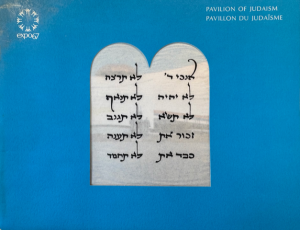 JERUSALEM — When a bomb exploded at a crowded bus stop across from the Binyanei Hauma – Jerusalem International Convention Center last Wednesday afternoon, Chaya Kaye, 19, from Toronto, was waiting at a bus stop nearby.
JERUSALEM — When a bomb exploded at a crowded bus stop across from the Binyanei Hauma – Jerusalem International Convention Center last Wednesday afternoon, Chaya Kaye, 19, from Toronto, was waiting at a bus stop nearby.
Chaya Kaye, right, and one of her patients
The Sherut Leumi (National Service) volunteer had just left her place of internship, Shaare Zedek Medical Center, and was waiting for the No. 13 bus to take her to Binyanei Hauma to meet a friend.
“All of a sudden, I had this strange feeling, and then I heard the ambulances,” said Kaye, who started her one-year volunteer program in the hospital’s geriatric ward in September after graduating from Ulpanat Orot, a girls secondary school in Toronto. She called her friend, a seminary student, who was directly across the street from the blast.
“She was in shock. Everyone was. There was tons of traffic and screaming,” Kaye says. She ran the normally 20-minute wa
lk to the site, to be with her friend.
By the time she arrived on the scene, her friend, quite shaken and scared, had already taken a ride back to her seminary. Kaye stayed to help, but soon realized she could be of most assistance at the hospital where she was a volunteer. Many of the wounded, who had been hurt by the flying shrapnel of steel balls, nails and screws embedded in the bomb, had been taken to Shaare Zedek, with the balance going to the Hadassah Ein Kerem Medical Center, Hadassah-Mount Scopus and Bikur Cholim hospitals. Kaye ran back to the hospital.
She went straight to the ER, where she was immediately put to work. “All hands were on deck,” she said.
The severely injured were rushed into surgery, while the less severe cases were treated in the emergency ward. Kaye found herself in a room with five victims who had already received initial treatment.
“They had bandages around their legs, and there was lots of blood. It looked as though their legs had been badly burnt,” Kaye said. She comforted one teenaged victim who was waiting for his mother – stuck in traffic – to arrive at the hospital. “He used my cellphone to call her, and I held the phone to his ear because his hands were bandaged. Seeing this kid in pain and shock was terrible.”
As a regular volunteer helping the elderly in the geriatric rehabilitation ward with their meals, she is often confronted with death. “People die every day. Just today, three people died on my ward,” Kaye said, the day after the terror attack. “Working in the ER during a terror attack was very different. It was scary. But I don’t want to dwell on it. Thank God there was only one death.”
Kaye said she was surprised to discover how efficiently the ER operated in response to the attack. “They are very organized, thank God. If this happened anywhere else in the world, it would not have been as organized as it was. They are very on top of things.”
According to Kaye’s friend, Vivi Stahl, an interning physician at Shaare Zedek, the hospital’s efficiency can be attributed to its staff’s extraordinary experience in dealing with multi-casualty incidents.
“It was so efficient last night because they know exactly what they’re doing. Everybody is prepared,” said Stahl, 29, “Most of the staff are seasoned veterans and worked through the last intifadah, when [terror attacks] like this happened on a regular basis.”
Stahl, originally from Teaneck, N.J., helped a few victims of the bombing who were rushed to the internal medicine ward where she works. She said the strangest part of the event was having to continue working side-by-side with Arab colleagues.
“The truth is that it was really hard to look them in the face. It was tense,” she said, adding that usually, the Jewish and Arab doctors and nurses not only work together, but are great friends. “But we had to move past it very quickly, because when you’re trying to save a patient, nothing that’s going on outside matters. That’s just the way medicine is.”
For Stahl, it was strange just to be there. “I wasn’t watching it on TV. I was actually [there],” she said.
The experience affected her deeply. “I went into the volunteer program to make a contribution, and for the first time, I really felt needed by my country,” she said.






